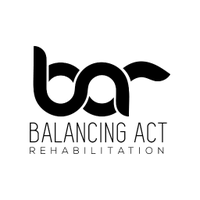
Balancing Act Rehab
@dizzydoctors
We treat and talk about all things vestibular. 🎙Talk Dizzy to Me
ID: 1062103971979030529
http://www.balancingactrehab.com 12-11-2018 22:04:54
162 Tweet
346 Takipçi
16 Takip Edilen




















@dizzydoctors
We treat and talk about all things vestibular. 🎙Talk Dizzy to Me
ID: 1062103971979030529
http://www.balancingactrehab.com 12-11-2018 22:04:54
162 Tweet
346 Takipçi
16 Takip Edilen


















